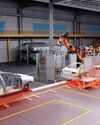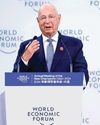
By shopping at Walmart, I am likely contributing to the demise of the independently-owned grocery store, which is disappearing across the country. But the prices make the choice easy. On a recent day, a 42-oz. tub of Quaker Oats was $9.99 at Key Foods and $5.68 at Walmart; a 500-ml bottle of California Olive Ranch olive oil was $14.49 vs. $8.37; and Rao's homemade tomato sauce was $9.99 vs. $6.88. These prices are one major reason Walmart captures 1 in 4 grocery dollars in America.
That may not last. These days, the U.S. government appears ready to listen to the argument that Walmart and other big chains including Dollar General, which is expanding at a rapid clip across the country, come by those prices unfairly because of their market power. There's a law on the books-1936's Robinson-Patman Act-that essentially says suppliers in any industry can't give lower prices and special deals to big chain stores if it costs the same to serve them as other stores. The law also says retailers can't bully suppliers into giving those discounts. But because Walmart and dollar stores are so huge, representing a big part of a supplier's business, they're able to extract deals and low prices from suppliers, according to Small Business Rising and the Main Street Competition Coalition, two groups of independent business owners making their case in congressional hearings and television ads. It's not just groceries; independent pharmacies, bookstores, auto-parts stores, and other types of retailers are also struggling on an uneven playing field, they say.
This story is from the {{IssueName}} edition of {{MagazineName}}.
Start your 7-day Magzter GOLD free trial to access thousands of curated premium stories, and 9,000+ magazines and newspapers.
Already a subscriber ? Sign In
This story is from the {{IssueName}} edition of {{MagazineName}}.
Start your 7-day Magzter GOLD free trial to access thousands of curated premium stories, and 9,000+ magazines and newspapers.
Already a subscriber? Sign In

Q & A: Borge Brende
The World Economic Forum president talks with TIME editor Sam Jacobs

Q & A - Rene Haas
Arm's CEO on how his hardware is supporting the Fourth Industrial Revolution

The conflicts looming over 2025
WHEN DONALD TRUMP TOOK THE OATH OF OFFICE AS President in January 2017, his first foreign policy priority was to get tough on China. The Trump 2.0 Administration will continue that work. But when he strides back into the Oval Office in January 2025, Trump will also become responsible for U.S. management of two dangerous wars, the kinds of hot foreign policy crises he was fortunate to avoid during his first term.

Rev Lebaredian
Nvidia's vice president of Omniverse and simulation technology on training AI-powered robots

5 predictions for AI in 2025
New uses and policy questions come into focus

Roy Wood Jr. The comedian on his new stand-up special, the importance of working in food service, and learning from Keanu Reeves
8 QUESTIONS WITH Roy Wood Jr.

A call for global cooperation in the Intelligent Age
Cultivate wisdom along with innovation

The D.C. Brief
IN THE END, THE THREAT OF A FARright revolt proved more menacing than most imagined, as Republican Mike Johnson initially came up short on Jan. 3 during the first balloting to keep him as Speaker.

The digital labor revolution
OVER THE PAST TWO YEARS, WE'VE WITNESSED advances in AI that have captured our imaginations with unprecedented capabilities in language and ingenuity. And yet, as impressive as these developments have been, they're only the opening act. We are now entering a new era of autonomous AI agents that take action on their own and augment the work of humans. This isn't just an evolution of technology. It's a revolution that will fundamentally redefine how humans work, live, and connect with one another from this point forward.

Tech we can trust
Serving humanity's best interests must be at the center of progress